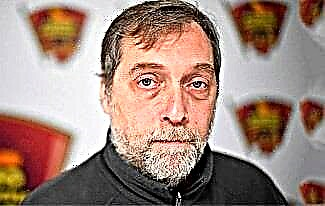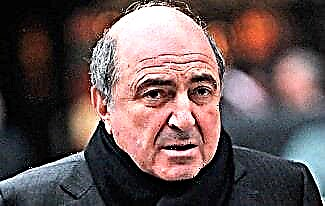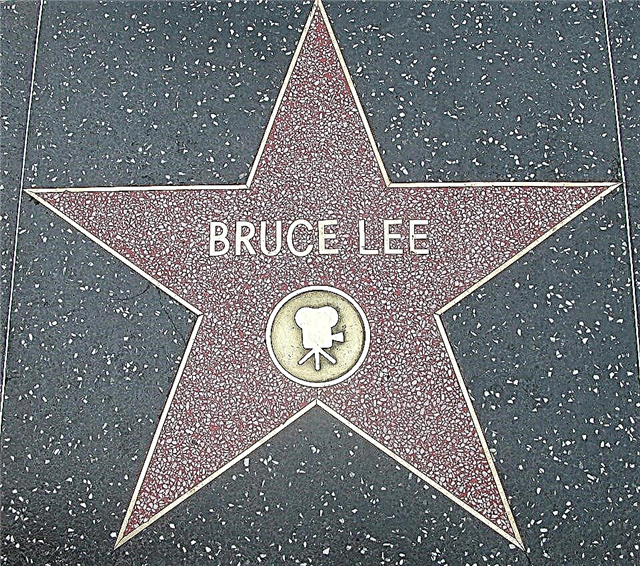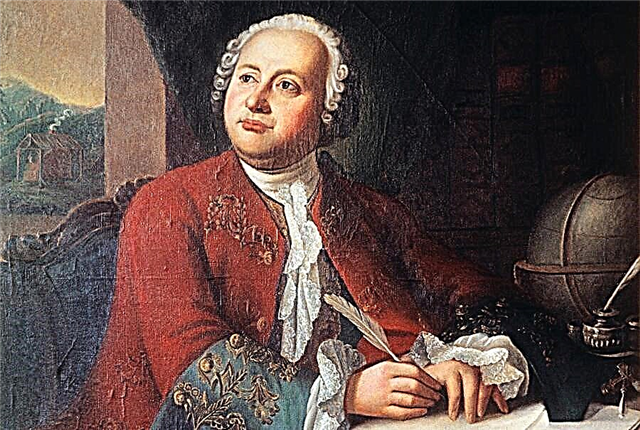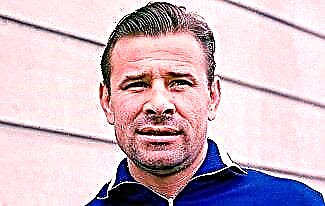Antonio Lucho (Lucio, Lucio) Vivaldi (1678-1741) - Italian composer, violin virtuoso, teacher, conductor and Catholic priest. Vivaldi is one of the greatest exponents of the 18th century Italian violin art.
The master of the ensemble and orchestral concert is the Concerto Grosso, the author of about 40 operas. One of his most famous works are considered to be 4 violin concertos "The Seasons".

There are many interesting facts in Vivaldi's biography, which we will tell about in this article.
So, before you is a short biography of Antonio Vivaldi.
Biography of Vivaldi
Antonio Vivaldi was born on March 4, 1678 in Venice. He grew up and was brought up in the family of the barber and musician Giovanni Battista and his wife Camilla. In addition to Antonio, 3 more daughters and 2 sons were born in the Vivaldi family.
Childhood and youth
The future composer was born ahead of schedule, at the 7th month. The midwife convinced the parents to baptize the baby immediately, in case of sudden death.
As a result, within a couple of hours the child was baptized, as evidenced by the entry in the church book.

An interesting fact is that an earthquake occurred in Venice on Vivaldi's birthday. This event shocked his mother so much that she decided to appoint her son as a priest when he reached maturity.
Antonio's health left much to be desired. In particular, he suffered from asthma. Not much is known about the composer's childhood and youth. Probably, it was the head of the family who taught the boy to play the violin.
It is curious that the child mastered the instrument so well that he periodically replaced his father in the chapel when he had to leave the city.
Later, the young man performed the duties of a "goalkeeper" at the temple, opening the gate for the parishioners. He had a sincere desire to become a clergyman, which made his parents happy. In 1704, the guy held Mass in the church, but due to poor health it was very difficult for him to cope with his duties.
In the future, Antonio Vivaldi will hold Mass several more times, after which he will leave his duties in the temple, although he will continue to remain a priest.
Music
At the age of 25, Vivaldi became a virtuoso violinist, in connection with which he began to teach orphans and poor children to play the instrument at the school at the monastery, and then at the conservatory. It was during this period of his biography that he began to compose his brilliant works.
Antonio Vivaldi wrote concerts, cantatas and vocal music based on biblical texts for students. These works were intended for solo, choral and orchestral performance. Soon he began to teach orphans to play not only the violin, but also the viola.
In 1716, Vivaldi was entrusted with managing the conservatory, as a result of which he was responsible for all the musical activities of the educational institution. By that time, 2 opuses of the composer, 12 sonatas each, and 12 concerts - "Harmonious Inspiration", had already been published.
The music of the Italian gained popularity outside the state. Interestingly, Antonio performed at the French embassy and before the Danish king Frederick IV, to whom he later dedicated dozens of sonatas.

After that, Vivaldi settled in Mantua at the invitation of Prince Philip of Hesse-Darmstadt. During this time he began to compose secular operas, the first of which was called Otto in the Villa. When this work was heard by the impresario and patrons, they appreciated it.
As a result, Antonio Vivaldi received an order for a new opera from the head of the San Angelo Theater. According to the composer, in the period from 1713-1737. he wrote 94 operas, but only 50 scores have survived to this day.
Initially everything went well, but later the Venetian public began to lose interest in operas. In 1721, Vivaldi went to Milan, where he presented the drama "Sylvia", and the next year presented an oratorio based on a biblical plot.
Then the maestro lived for some time in Rome, creating new operas. An interesting fact is that the Pope personally invited him to give a concert. This event became one of the most important in his biography, given the fact that Vivaldi was a Catholic priest.
In 1723-1724. Vivaldi wrote the world famous "Seasons". Each of the 4 violin concertos was dedicated to spring, winter, summer and autumn. Musicologists and ordinary lovers of classical music recognize that these works represent the pinnacle of the Italian's mastery.
It is curious that the famous thinker Jean-Jacques Rousseau spoke highly of Antonio's work. Moreover, he himself loved to perform some compositions on the flute.

Active touring led Vivaldi to meet the Austrian ruler Karl 6, who liked his music. As a result, a close friendship developed between them. And if in Venice the work of the maestro was no longer so popular, in Europe everything was exactly the opposite.
After meeting Karl 6, Vivaldi moved to Austria, hoping for career growth. However, the king died shortly after the arrival of the Italian. At the end of his life, Antonio had to sell his works for a penny, experiencing serious financial difficulties.
Personal life
Since the maestro was a priest, he adhered to celibacy, as required by Catholic dogma. And yet, his contemporaries caught him in close ties with his pupil Anna Giraud and her sister Paolina.
Vivaldi taught Anna music, writing many operas and solo parts for her. Young people often rested together and made joint trips. It is worth noting that Paolina was ready to do anything for him.
The girl looked after Antonio, helping him cope with chronic illness and physical weakness. The clergy could no longer calmly observe how he was in the company of two young girls.
In 1738, the Cardinal-Archbishop of Ferrara, where a carnival with constant operas was to take place, forbade Vivaldi and his pupils to enter the city. Moreover, he ordered to celebrate Mass, in view of the fall of the musician.
Death
Antonio Vivaldi died on July 28, 1741 in Vienna, shortly after the death of his patron Charles 6. At the time of his death, he was 63 years old. For the past few months he lived in complete poverty and oblivion, as a result of which he was buried in the cemetery for the poor.

